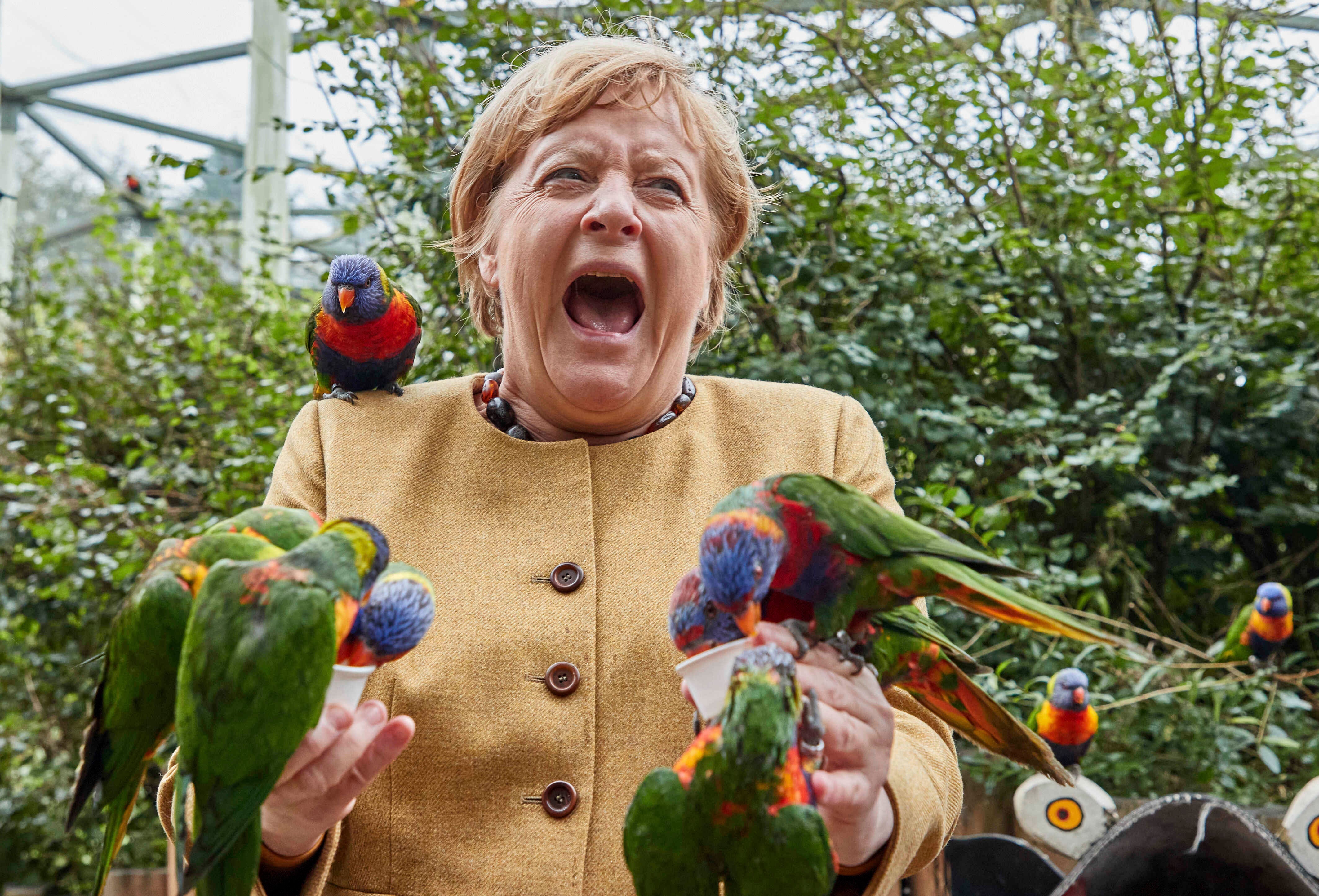German election to set country’s direction as Merkel era comes to end
Incumbent chancellor is not running for re-election in first time in post-war history

Germany is preparing to vote for a new parliament in an election that will set the country’s direction after 16 years with Angela Merkel at the helm.
The current chancellor is not running for re-election - the first time this has happened since West Germany’s first initial vote more than 70 years ago.
About 60.4 million people in the nation of 83 million are eligible to elect the new parliament, which decides who will be the next head of government.
Recent polls point to a neck-and-neck race between Ms Merkel’s center-right Union bloc and the Social Democrats, with the latter marginally ahead.
The polls show the Greens, making their first bid for the chancellorship, in third place after a campaign in which all three have held the lead.
The Social Democrats’ candidate, current finance minister and Vice Chancellor Olaf Scholz, has seen his personal ratings climb amid error-strewn campaigns by his rivals, the Union’s Armin Laschet and the Greens’ Annalena Baerbock.
Ms Merkel, who remains personally popular after steering Germany through a string of crises, announced in 2018 that she wouldn’t go for a fifth term.
Voters appear underwhelmed by the choices. Whoever finishes first is expected to get a historically low share of the vote, with polls showing no party expected to get 30 per cent support.
The lowest score so far for a winning party is the Union’s 31 per cent in 1949, which also is the bloc’s worst showing to date.
Such an outcome would likely trigger lengthy haggling on a new governing coalition, with whichever party finishes first best-placed — but not guaranteed — to have its candidate succeed Ms Merkel.
A first-place finish for the Social Democrats, who provided three of Germany’s eight post-World War II chancellors but have been Merkel’s junior governing partners for 12 of the past 16 years, would be remarkable after a long poll slump for the party.
When the Union and the Greens chose their candidates this spring, the election was widely expected to be a race between the two.
The Union was prepared for a Laschet-Baerbock battle and “Laschet wanted practically to act as the incumbent, with all his leadership expertise” from his current job as governor of Germany’s most populous state, North Rhine-Westphalia, political science professor Andrea Roemmele of the Hertie School in Berlin said this week.
“But now the duel isn’t Laschet against Baerbock, it’s Laschet against Scholz, and in this combination Mr Laschet has been forced into the role of challenger,” she said.
“Scholz is deploying all the power of his vice chancellorship, of the finance minister, and is enjoying campaigning this way; he has simply managed to build up trust.”
Mr Scholz also has had the smoothest campaign, although opponents sought to capitalise on a recent police search at his ministry.
Ms Baerbock suffered from early gaffes, notably having to correct details in a resume and facing allegations of plagiarism in a new book.
Mr Laschet, the governor of North Rhine-Westphalia, was nominated after a divisive internal battle with a rival, then suffered from perceptions that he poorly handled deadly floods that hit his state in July.
A scene in which he was seen laughing in the background as Germany’s president delivered solemn remarks about the disaster did not help his campaign image.
Voters will go to the polls on Sunday to cast their ballot, with all votes expected to have been counted by Monday morning.
The strongest party from the vote will seek to form a governing coalition.
Additional reporting by Associated Press
Subscribe to Independent Premium to bookmark this article
Want to bookmark your favourite articles and stories to read or reference later? Start your Independent Premium subscription today.

Join our commenting forum
Join thought-provoking conversations, follow other Independent readers and see their replies